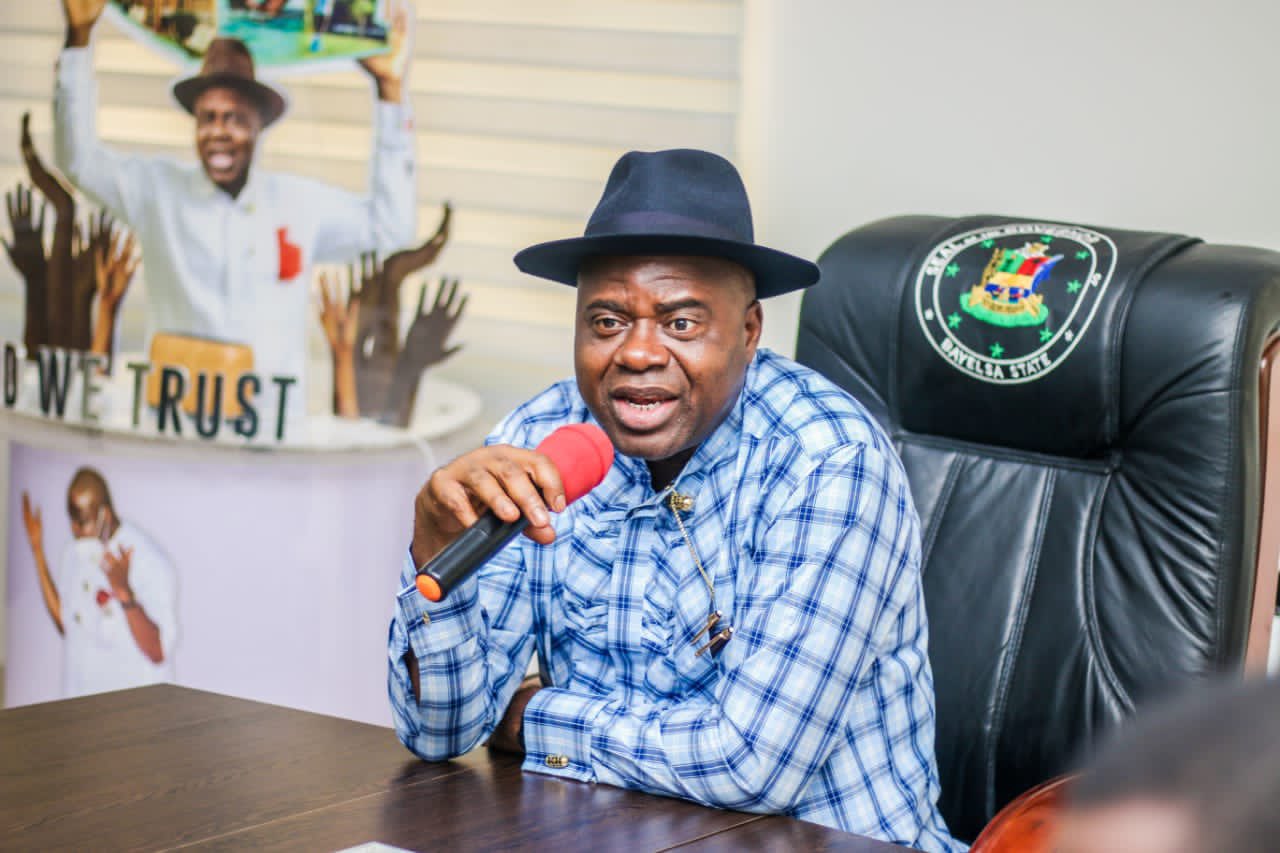OBI-BATism and the President-Elect "Kingmaker"
By: Oludayo Tade
OBI-BATISM is a movement of Nigerian voters and abstainers for the actualization of the return of political power to the southern part of the country after the North ended its eight-year hold on power under the incumbent president , Muhammadu Buhari . OBI-BATisme drives this concern before political parties elect their flag bearers in the interest of peace, justice, equity and national development. While the All Progressives Congress (APC) settled for Bola Ahmed Tinubu, the main opposition Peoples Democratic Party (PDP) refused to vote for a flag bearer from southern Nigeria. PDP dared to propose a perpetual competitor, Atiku Abubakar. This balkanized the party, forcing the removal of five governors named “G5” (Nyesom Wike, Rivers; Samuel Ortom, Benue; Ifeanyi Uguwanyi, Enugu; Okezie Ikpeazu, Abia and Seyi Makinde from Oyo State). These governors claimed to represent a movement fighting for fairness, justice and fairness. Obviously, they were against the emergence of another northerner as President of Nigeria. All pleas have failed, they have become a “cult” political group, ready to negotiate with interests that align with their beliefs. Not ready to be requisitioned, Peter Obi, the new face that changed the dynamics of the 2023 presidential election, defected from the PDP to the Labor Party and secured the presidential ticket. Similarly, former PDP member Rabiu Kwakwanso also landed the New Nigeria Peoples Party (NNPP) ticket.
A four-horse race then began between the forces that wanted political power in the center to stay in the North (Atiku Abubakar and Rabiu Kwakwanso) and the forces that wanted political power to move south (Bola Ahmed Tinubu and Peter Obi). These formations set the tone for a new political dynamic that rocked the 2023 elections and the eventual winner announced by Mahmood Yakubu, the Chairman of the Independent National Electoral Commission (INEC) in the early hours of March 1, 2023. The new The month of March opened with the declaration of Bola Ahmed Tinubu (BAT) of the APC as president-elect. The 'kingmaker' turned president-elect beat his longtime rival and political associate, Atiku Abubakar and third force, Peter Obi, to second and third place respectively. Bola Tinubu who promised renewed hope polled 8,794,726 while Atiku Abubakar who promised to unify the country polled 6,984,520 which is 1,810,206 below the winner's vote. Political game-changer Peter Obi, who has promised to take the nation from consumption to production, gave the two establishment forces a battle for their money, returning with 6,101,533 votes. Rabiu Kwakwanso could only finish with 1,496,687 votes; most of that came from Kano, the only state he won by decimating other political parties.
Although the results were announced, some felt that the process was not entirely credible. They are unhappy with the way polls have been conducted by INEC, such as delayed uploading of results, late arrival of INEC staff, voter suppression and intimidation, collaborative voter fraud, violence and disenfranchisement of Nigerians. This perception has generated cold war and hate speech on many social media platforms. Although he finished third, many did not believe that Peter Obi had not won. They believe that there are electoral scheming or embezzlement. Friends, associates and family attacked each other over political differences. The sociology of voter behaviors and preferences, exemplified by the 2023 presidential election, tells me that Nigerians desire a country where peace, progress and prosperity are assured, but differ on the right driver to take the country towards this destination. The main conflict was and still is between supporters of President-elect Bola Tinubu and those of Labor Party candidate Peter Obi. The old men fought dirty, the young people felt disappointed with the result. They felt the process was compromised. The Asiwaju people would not tolerate anyone speaking ill of the man they believe holds the magic wand of their future.
The presidential results tell me a lot of stories though. One, a total of 14,896,259 (Tinubu + Obi votes) voted for a southern presidency while a total of 8,481,207 (Atiku + Kwakwanso votes) voted for a northern presidency. The difference of 6,415,052 voted for equity, justice, inclusive governance, peace and the unification of the country which could have been threatened if the opposite happened. Second, the total number of people who voted against the president-elect is 14,582,740, indicating that it is possible that the chances of the president-elect were threatened were it not for the Obi phenomenon and the disruptive political decision of the G5 in the DPP. This means that the president-elect will need to understand the dynamic needs of...

By: Oludayo Tade
OBI-BATISM is a movement of Nigerian voters and abstainers for the actualization of the return of political power to the southern part of the country after the North ended its eight-year hold on power under the incumbent president , Muhammadu Buhari . OBI-BATisme drives this concern before political parties elect their flag bearers in the interest of peace, justice, equity and national development. While the All Progressives Congress (APC) settled for Bola Ahmed Tinubu, the main opposition Peoples Democratic Party (PDP) refused to vote for a flag bearer from southern Nigeria. PDP dared to propose a perpetual competitor, Atiku Abubakar. This balkanized the party, forcing the removal of five governors named “G5” (Nyesom Wike, Rivers; Samuel Ortom, Benue; Ifeanyi Uguwanyi, Enugu; Okezie Ikpeazu, Abia and Seyi Makinde from Oyo State). These governors claimed to represent a movement fighting for fairness, justice and fairness. Obviously, they were against the emergence of another northerner as President of Nigeria. All pleas have failed, they have become a “cult” political group, ready to negotiate with interests that align with their beliefs. Not ready to be requisitioned, Peter Obi, the new face that changed the dynamics of the 2023 presidential election, defected from the PDP to the Labor Party and secured the presidential ticket. Similarly, former PDP member Rabiu Kwakwanso also landed the New Nigeria Peoples Party (NNPP) ticket.
A four-horse race then began between the forces that wanted political power in the center to stay in the North (Atiku Abubakar and Rabiu Kwakwanso) and the forces that wanted political power to move south (Bola Ahmed Tinubu and Peter Obi). These formations set the tone for a new political dynamic that rocked the 2023 elections and the eventual winner announced by Mahmood Yakubu, the Chairman of the Independent National Electoral Commission (INEC) in the early hours of March 1, 2023. The new The month of March opened with the declaration of Bola Ahmed Tinubu (BAT) of the APC as president-elect. The 'kingmaker' turned president-elect beat his longtime rival and political associate, Atiku Abubakar and third force, Peter Obi, to second and third place respectively. Bola Tinubu who promised renewed hope polled 8,794,726 while Atiku Abubakar who promised to unify the country polled 6,984,520 which is 1,810,206 below the winner's vote. Political game-changer Peter Obi, who has promised to take the nation from consumption to production, gave the two establishment forces a battle for their money, returning with 6,101,533 votes. Rabiu Kwakwanso could only finish with 1,496,687 votes; most of that came from Kano, the only state he won by decimating other political parties.
Although the results were announced, some felt that the process was not entirely credible. They are unhappy with the way polls have been conducted by INEC, such as delayed uploading of results, late arrival of INEC staff, voter suppression and intimidation, collaborative voter fraud, violence and disenfranchisement of Nigerians. This perception has generated cold war and hate speech on many social media platforms. Although he finished third, many did not believe that Peter Obi had not won. They believe that there are electoral scheming or embezzlement. Friends, associates and family attacked each other over political differences. The sociology of voter behaviors and preferences, exemplified by the 2023 presidential election, tells me that Nigerians desire a country where peace, progress and prosperity are assured, but differ on the right driver to take the country towards this destination. The main conflict was and still is between supporters of President-elect Bola Tinubu and those of Labor Party candidate Peter Obi. The old men fought dirty, the young people felt disappointed with the result. They felt the process was compromised. The Asiwaju people would not tolerate anyone speaking ill of the man they believe holds the magic wand of their future.
The presidential results tell me a lot of stories though. One, a total of 14,896,259 (Tinubu + Obi votes) voted for a southern presidency while a total of 8,481,207 (Atiku + Kwakwanso votes) voted for a northern presidency. The difference of 6,415,052 voted for equity, justice, inclusive governance, peace and the unification of the country which could have been threatened if the opposite happened. Second, the total number of people who voted against the president-elect is 14,582,740, indicating that it is possible that the chances of the president-elect were threatened were it not for the Obi phenomenon and the disruptive political decision of the G5 in the DPP. This means that the president-elect will need to understand the dynamic needs of...
What's Your Reaction?






















